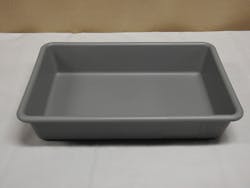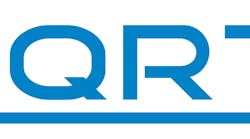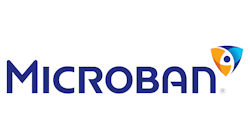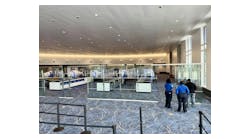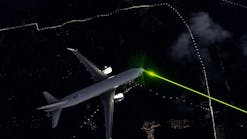The COVID-19 pandemic is the single biggest disaster to hit global travel in our lifetime. Tourism has ground to a halt across the world, and how we view exploration has changed dramatically. Unlimited and affordable travel has been hailed as bringing freedom and benefits for business and leisure, but now we understand more about how this can significantly contribute to the spread of a virus within a country, across borders and even through continents. Without a doubt, infected passengers unknowingly carrying the virus contributed to the rapid and broad spread of SARS-CoV-2. For this reason, airports will be under even more scrutiny when it comes to ensuring the cleanliness of the concourse and the safety of its users, not only as we emerge from the current situation, but also for the prevention of future pandemics.
Is Cleaning Enough?
Airports are beginning to welcome back more visitors and, with increasing volumes of traffic, airport cleanliness will be an important concern for passengers, staff members and legislative powers alike. One location that is visited by all, and perhaps needs the greatest attention, is security the area dedicated to keeping travelers safe. Some astounding research conducted in Finland found that 50 percent of hand-carried luggage trays at security checkpoints in the Helsinki-Vantaa airport harbored respiratory pathogens, showing that more needs to be done about surface cleanliness. Inadequate cleaning of these high-touch points can allow microorganisms to build up quickly or spread from surface to surface if picked up by the users hands. In addition, the activity of damaging bacteria can lead to early product degradation and staining, which many people associate with a disregard for appearance and sanitation.
Unfortunately, the findings in Finland are unlikely to be an isolated event but are almost certainly representative of many airports across the world, as traditional methods of cleaning might not be enough to completely eliminate microorganisms in these locations. Typical disinfectants can only offer limited residual activity against microbes once sprayed onto a surface, allowing microbial communities to bounce back after a single touch. However, with a continuous stream of users, it is often impractical to expect staff to spray and wipe every high-touch surface including airport trays between each contact. Consequently, even standard cleaning practices only go a little way to relieving traveler concerns regarding the cross-contamination of microbes through airports.
A New Kind of Security
With this in mind, the Scandinavian company CQRTS has pioneered innovative security trays with built-in antimicrobial product protection from Microban, to help prevent the growth and proliferation of microbes. Independent laboratory tests have shown that bacteria, such as Methicillin-resistant Staphylococcus aureus (MRSA), are reduced by more than 99 percent on the surface of the CQRT TRAY powered by Microban. The technology is incorporated into the product during manufacture, becoming an integral part of the molecular structure to never wash off or wear away, even with extensive use by millions of passengers handling each airport tray. This proactive approach is the best complementary strategy to regular disinfection, keeping trays cleaner between cleans, and the trusted trademark from Microban gives customers real peace of mind.
Hidden Measures
The popularity of built-in antimicrobial technology is on the rise, as end-users become more aware of the microbes around them. However, finding the right technology to integrate into an existing product line and into the chemical structure of materials is never easy, and is particularly challenging for airport equipment where certain formulas are prohibited. Metal-based technologies including silver and zinc have long been heralded for their well-documented antimicrobial capabilities against bacteria, fungi and certain viruses. However, metal, of course, disrupts security procedures, showing up as a bright area on an X-ray and blocking the visibility of underlying structures.
Partnering with an antimicrobial expert has helped CQRTS to find the right balance of technologies to meet the diverse regulatory standards across the world. The experts at Microban incorporated a patented antimicrobial silver ion technology SilverShield that is largely based on silver phosphate glass active ingredients into the plastic security trays from CQRTS, but at a concentration that is undetected in an X-ray machine. It is only in this ionic state that silver is considered biologically active, operating a multimodal attack against microbes. The small, uniquely shaped particles are evenly dispersed throughout the security tray and are designed to release silver ions when bacteria encounter the tray surface. The CQRT TRAY has full approval from the European Civil Aviation Conference (ECAC) to declare that it is suitable for use in an X-ray machine and is already being used in airports across Europe, including Arlanda Airport in Sweden, Oslo Gardermoen Airport in Norway, Vienna International Airport in Austria and Aeroporto Adolfo Suarez Madrid-Barajas Airport in Spain.
Although security is an important place to start, the potential for built-in antimicrobial technology in airports can reach far beyond this to provide an additional level of cleanliness on high-touch surfaces throughout the entire concourse, and even on aircrafts. The diverse portfolio of scientifically-backed technologies from Microban can be and have been applied to all manner of materials and applications to complement cleaning strategies in the world of aviation. The mindset of travelers has shifted considerably toward the safety of travelling and everything must be done to reassure airport users of surface cleanliness and care and, with this, built-in antimicrobial technology can help to get the travel industry back up and running.
Darrell Taylor is a Key Account Manager for Microban International. Leveraging his extensive background in sales and product marketing, Darrell provides turnkey support services to Microbans network of European brand partners. Prior to joining Microban, Darrell worked as the Digital Marketing Manager for a global specialty chemicals company.
Owner of CQRTS A/S Mr. Frode Storkaas, is a Scandinavian business man based in Oslo Norway. He has had several executive positions in both Scandinavian and international companies, such as WJ Business partner, Electrolux and Staples. With marketing and sales background, he has been involved in numerous product developments. Among these are several that has been approved patented. Based on one of these patented products, he decided in 2011 to establish the sales of the CQRT TRAY range of security check point trays, and founded CQRTS A/S. The patented friction adding detail of these trays, ensure that they will pass the led curtains of the x-ray machines even if they are empty.
